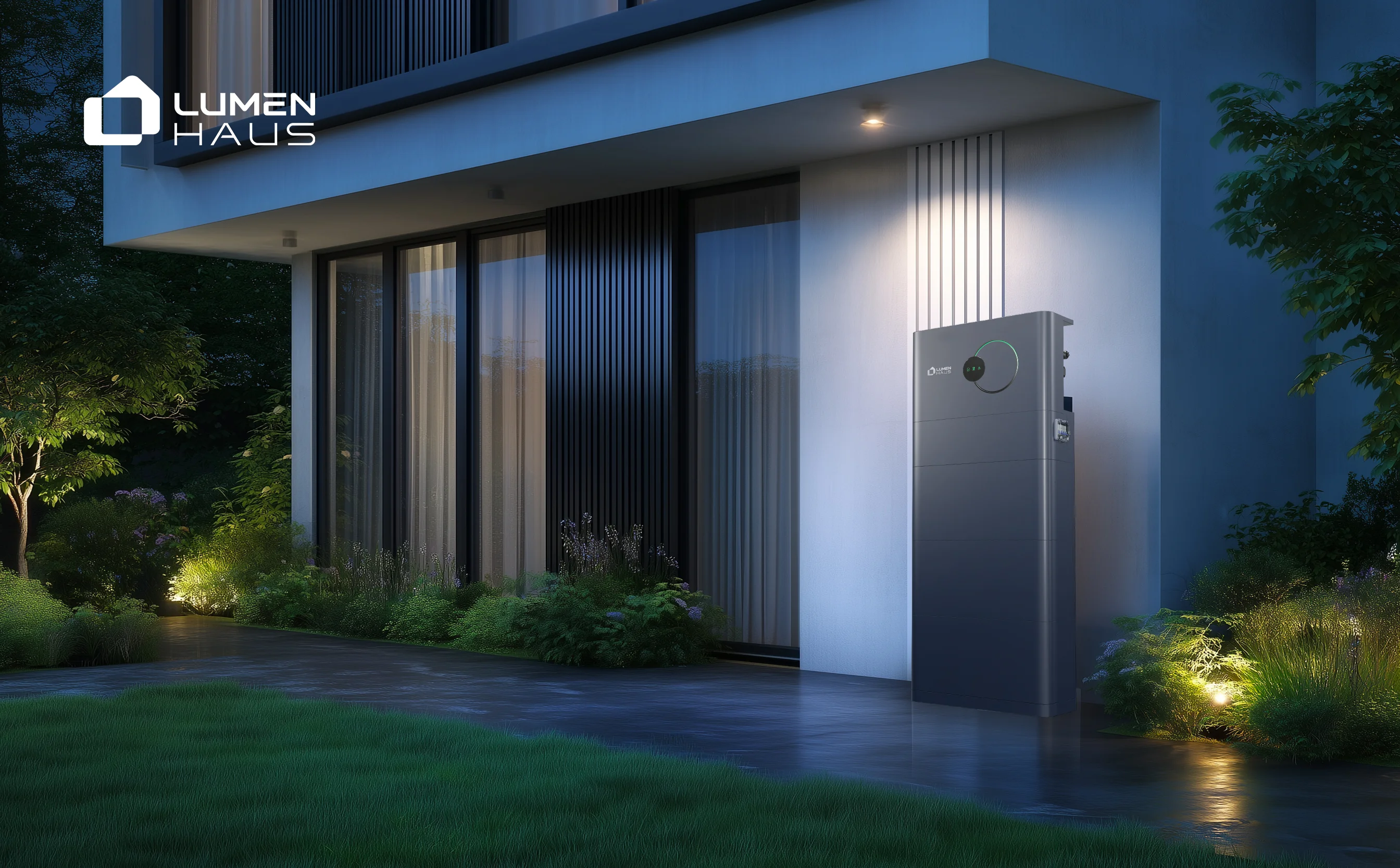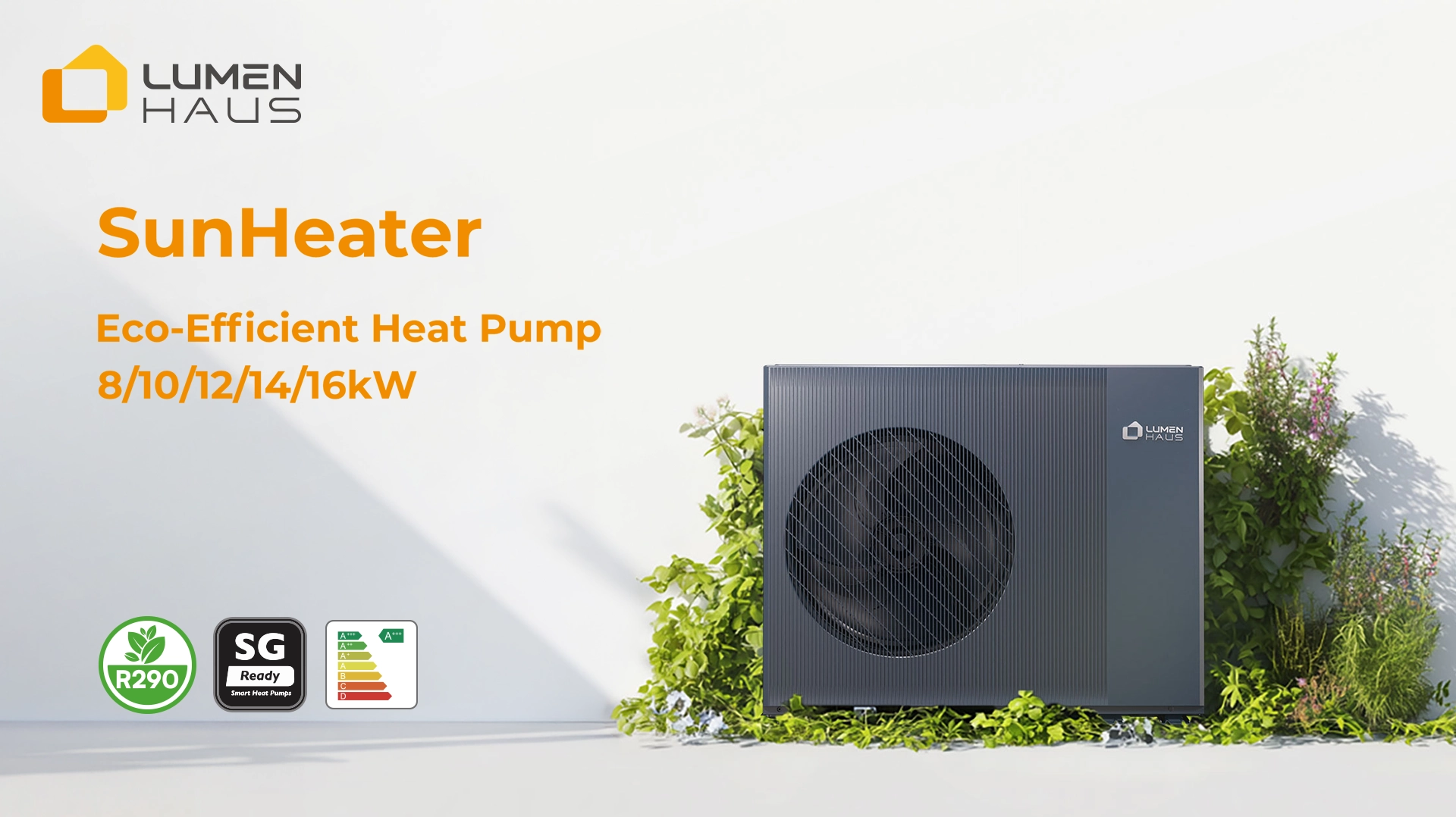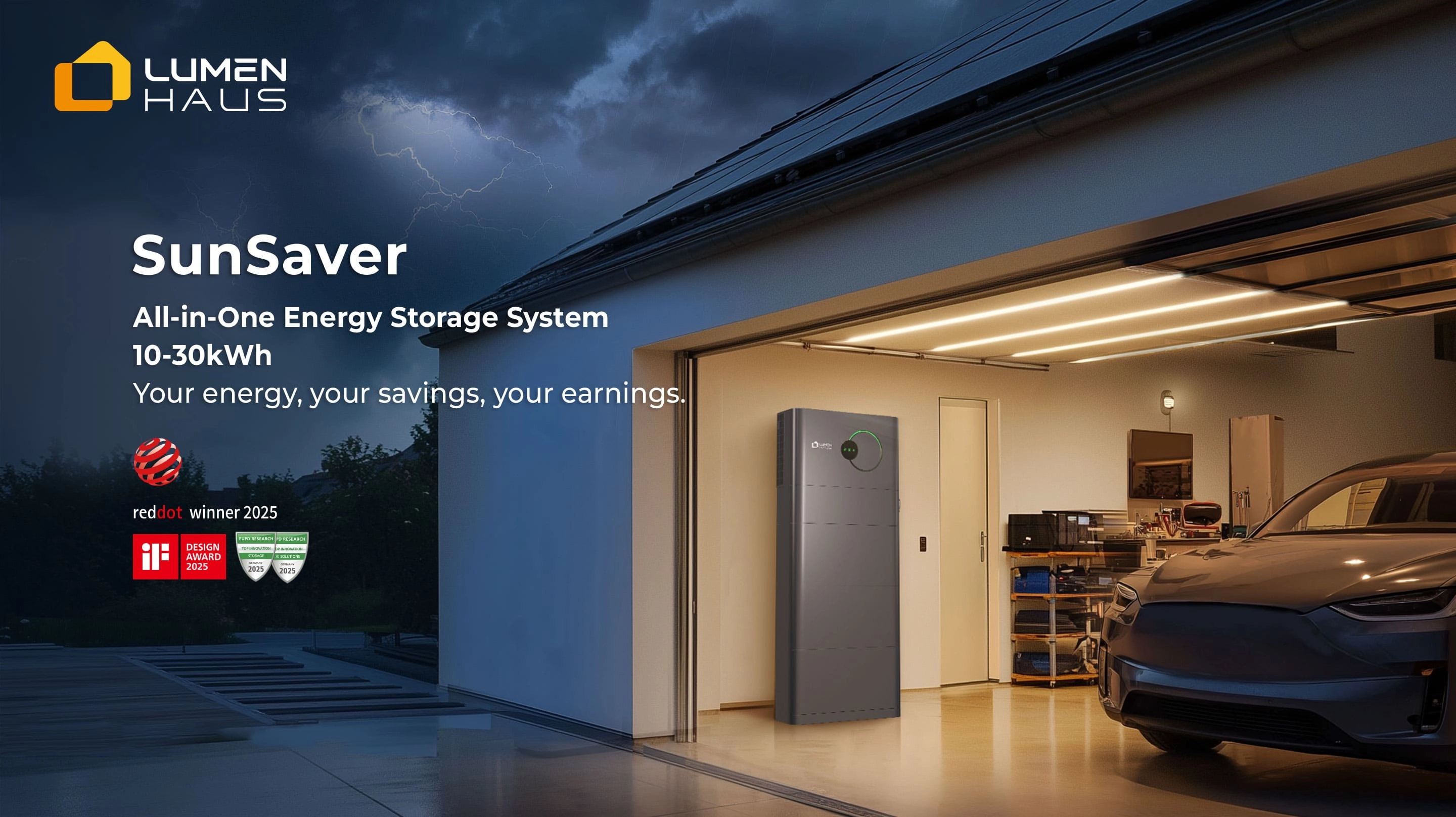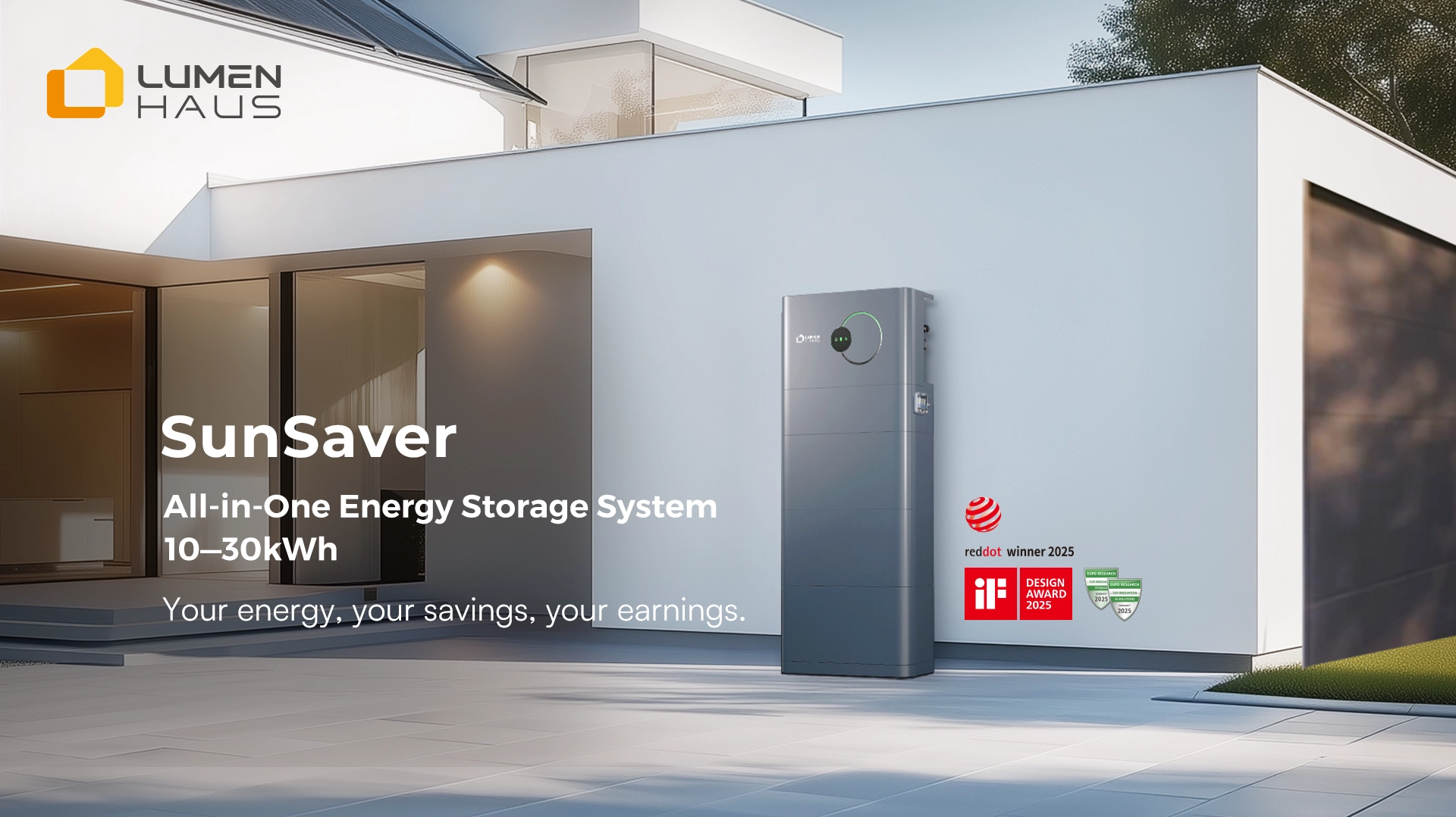Germany's Grid Relief: How Home Batteries Support the Energy Transition
Germany is in a race to power the nation almost entirely with clean energy by 2035, a goal that requires the power grid to become hyper-flexible. Recognizing that this flexibility cannot be achieved by utilities alone, the German government, through the Federal Ministry for Economic Affairs and Climate Action (BMWK), has rolled out a strategic plan that makes home battery adoption so financially compelling that it acts as a massive national incentive.
The cornerstone of this plan is financial and regulatory freedom. New proposals from the Federal Network Agency (BNetzA) aim to reform the core Renewable Energy Sources Act (EEG). This key change allows private battery systems to charge with affordable grid electricity.
So now, let's look at how a home battery supports energy transition. We present a solution in this blog article that can reduce your electricity expenses by using home batteries.

What Is A Home Battery?
When a household produces more than enough energy to consume, for example, when a solar panel produces more energy during a sunny day, you can store it in a home battery. And that's what a home battery is for. In simple terms, a home battery is a big power bank for your home to store your own energy when the sun goes down.
How Home Batteries Support the Energy Transition in Germany
1. Balancing the Grid
Keeping supply and demand in balance in renewable energy gets increasingly difficult, as there are more and more innovations in this area. Home batteries help ease that problem by storing up that extra power during the sunny or windy days and then handing it over when the demand surges. This keeps the whole system running like clockwork and makes it a lot less necessary to use old fossil fuel backup.
2. Saving Money with Smart Battery
Rather than sending that excess solar power back to the grid at a pretty poor rate, you can store it in your battery and use it later. This makes you less reliant on overpriced grid electricity. With the latest smart batteries on the market, you'll actually be able to top up your battery with cheaper electricity from the night and then use it when rates are at their peak.
3. More Value from Your Solar Panels
Pairing solar with a home battery means more energy independence and better long-term value.
4. Less Emissions and Clean Living
Every kilowatt-hour you save and reuse means 1 kilowatt-hour less of fossil fuel. Imagine if everyone did the same for the whole country. This can create a big national impact and accelerate Germany's Energiewende, the clean energy transition goal.
5. Having Power Even When the Grid Is Down
When the grid goes down, the stored energy in your home battery kicks in, powering the things that really matter, like leaving the lights on, keeping your fridge humming, and even getting your Wi-Fi up and running until the grid comes back on. A fully charged battery can usually get you through the night with the essentials covered until the sun starts shining and your solar panels take over. And let's be honest, it can be a pretty great feeling to have this sense of security.
How to Apply Subsidies or Financial Incentives for Home Batteries in Germany?
First off, you'll want to check out the national (KfW 442) and local programs that are available in your state and suit your battery size/type. Next, you'll need to get a quote from a certified installer and then register your planned system on the national Marktstammdatenregister. Get ready, because you will need some documents to prepare. Prepare all documentation, including tax ID and grid approval. Apply via the digital portal before you buy or install the battery, as grants can cover up to 30% and are often combined with 0% VAT for systems under 30 kWh. The key is to get support from a certified expert who has a deep understanding when it comes to installing a home battery and make sure your paperwork is sorted out in advance.
How to Choose the Right Size and Capacity for Your Home Battery
To get it right, you need to take a good hard look at how much power you're using on a daily basis. Think also about whether your energy needs might change in the future (you never know, you might be driving an electric car one day, for instance).
It's worth getting in touch with your installer; they'll be able to give you some personalized advice that takes into account your lifestyle, any local rebates, and how much power you normally use. Really, it's crucial you work with a solar contractor who knows what they're doing. For example, if you get a system from a company like LumenHaus, we'll work with you to figure out just how much battery backup you actually need to keep the things you really need running when the lights go out. We build custom battery storage and solar panel solutions that are built with your exact needs in mind. Our knowledgeable staff has been energizing Germany, and we take pride in being the top option for solar panel installation in Germany.
Common Misconceptions About Home Battery Storage
First, Many of you think that you can't add battery storage after installing solar panels, but in Germany, you can retrofit with hybrid or conventional inverters.
Second, Bigger is better. We like to say fit is best. It means that you will want to have a home battery that exactly matches your needs because having a home battery storage that is bigger than you need is uneconomical.
Third, You will save money, but high upfront costs mean financial benefits may vary depending on your solar surplus and grid tariffs.
Last, Home batteries don't make your home fully independent from the grid. Unfortunately, it's not true that you can power an entire house on batteries without breaking the bank. Though it's technically possible, the upfront cost is extremely high, anywhere from 100,000 to 200,000 euros, depending on the size of the battery bank you need for your place. And let's be real, you probably wouldn't need that. Most people's household battery banks are only really good for covering the loss of power for a handful of appliances and gadgets for a short period of time.
Knowing those facts is important and will actually make a big difference in your decision-making about home battery storage. We want you to understand everything about home batteries as well as their limitations so that you can distinguish the hype from reality.
Final Thoughts
Thanks to all the German government incentives and all the people looking to live more sustainably, home batteries are fast becoming a staple in a lot of German households these days. Want to save a bit of cash on your bills and do your part for the environment? A home battery is a win-win for your wallet and the planet as a whole. And if you're thinking of taking the switch, right now is the perfect time to do it. So, grab a chance to invest in more sustainable energy in the future.



